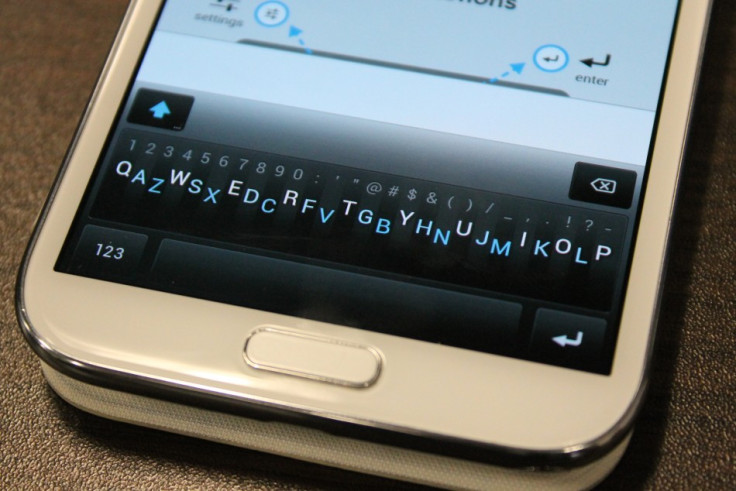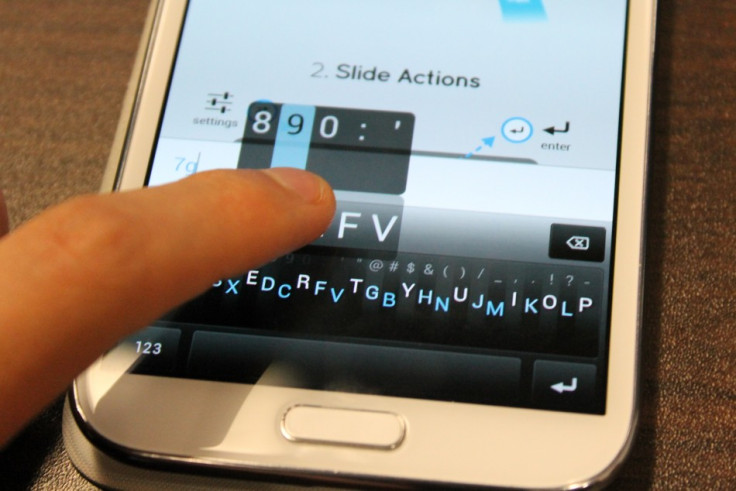Minuum Keyboard Beta: First Impressions
When we first saw the innovative Minuum keyboard back in April we were impressed. An Android keyboard that took the familiar Qwerty layout and squashed it into a continuous line of letters, saving space and claiming to be faster than any rival.

The premise is simple; reducing the height of the keyboard means less screen space is obscured while typing, and those behind Minuum claim the keyboard's algorithms are smart enough to accurately correct even the sloppiest of typing.
Headed by Will Warmsley, 23, and a product of the MaRS startup accelerator in Toronto, Canada, Minuum raised more than $87,000 (£58,000) through an Indiegogo campaign, well above its $10,000 goal, and claims its uses cover far more than smartphones and tablets. The company believes its keyboard could be used by any number of products spearheading the wearable tech revolution just around the corner.
But before we talk about typing with Google Glass and the elusive Apple iWatch, Minuum is available to a select few users as an Android beta, and I've been using the keyboard on a Samsung Galaxy Note 2 to find out more.
At this point, I should reiterate that Minuum is still in beta and not yet finished, but the concept seen here is what the company is aiming for; improvements to the correction algorithm will be made before it is released to the general public later this year.
Learning curve
I can type fairly accurately and at a decent speed on most mobile devices, be it iOS, Android, BlackBerry or Windows Phone, but typing with Minuum requires patience; there's a steep learning curve here and you can't fully rely on your finger muscle memory because the keyboard requires less vertical movement that you would be used to.
Having said that, the way Minuum corrects sloppy and incorrect typing into the words you were aiming for is impressive - and the keyboard shows off this ability by displaying what you actually typed next to each word the system assumes you meant. My typing improved with an afternoon of practice and I was soon typing accurately - so long as I trusted Minuum to tidy up my mistakes.
'Vylmug' was correctly translated to 'Typing' and 'kdtbkarc' became 'keyboard'. To the right of Minuum's guess is a scrollable list of alternative suggestions and I found if the system failed initially then the word I wanted was almost always first in this list of backups. Minuum claims the keyboard will be 99% accurate when available to the public.
Typing out punctuation and non-dictionary words is done by pressing and holding over the area of the keyboard you require, prompting two decks of keys to appear enlarged above your finger; navigate to the character you want and let go to type it.

Swipes
The keyboard employs swipes to speed up typing, so a swipe from right-to-left deletes the previous word (there's a backspace key to erase one letter at a time) and a swipe from left-to-right inserts a space, while a second swipe to the right adds a full stop and the next letter will be capitalised, similar to tapping the spacebar twice in iOS.
Sadly there are no dedicated keys for numbers or any other punctuation, so even entering a simple comma requires a touch somewhere to the right of the keyboard, then a swipe up to find the comma, before letting go to type it.
On my Samsung's 5.55in screen Minuum saved about 25mm of vertical space when used in portrait compared to the standard keyboard, but with phones getting bigger all the time I don't think this is Minuum's killer feature.
Neither the speed, ability to correct mistakes or saved screen space won me over enough to make a permanent switch from Android's standard keyboard, but the future of Minuum isn't just with smartphones and tablets.
What's far more exciting is its potential to work with devices which don't have keyboards at all. In the video below, Warmsley shows how Minuum can work on a sheet of paper or even a line drawn on your arm. He also explained to IBTimes UK how Minuum could interact with the camera of Google Glass to give the device a virtual keyboard.
Speaking to us earlier this year, Warmsley hopes licensing Minuum to hardware manufacturers will be the company's future, and this could lead to the technology working with a range of wearable gadgets. "Google Glass is definitely something we're looking at," Warmsley said. "We haven't been able to make any deals yet, but we've started to talk to a number of manufacturers of different sizes.
"In most wearable devices I've seen people have either simply removed typing entirely or are expecting to rely on voice, as is the case with Google Glass. Our keyboard is clearly something over what they have, because they're not expecting you to type at all."
Minuum could well be a glimpse into the future of typing, but the future it's betting on is one where typing is done on more than just smartphones and tablets.
© Copyright IBTimes 2025. All rights reserved.






















